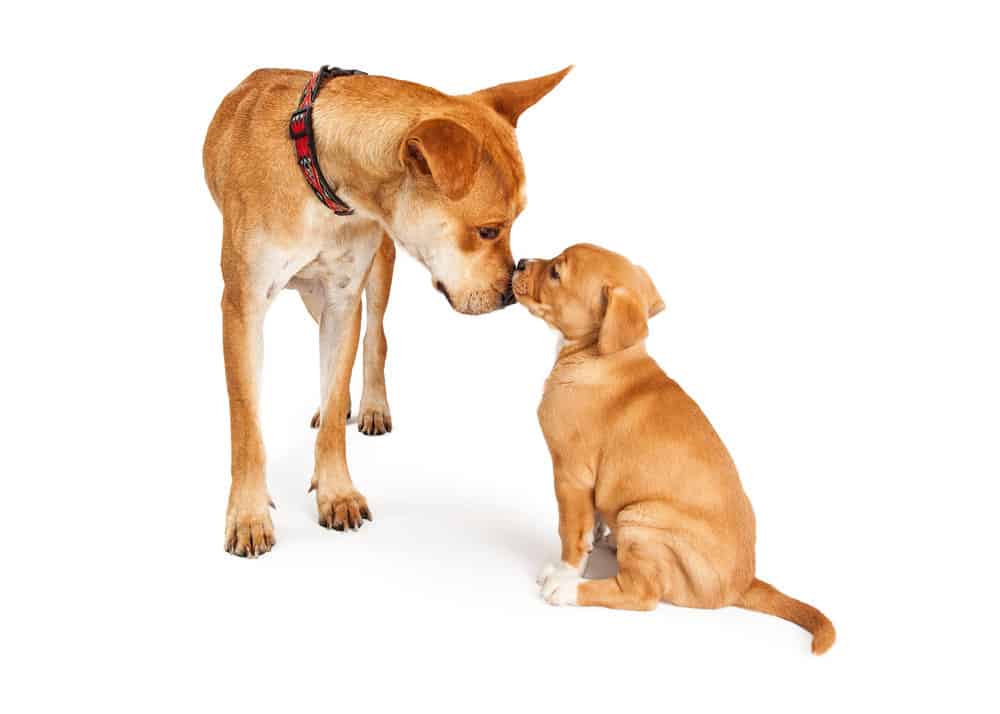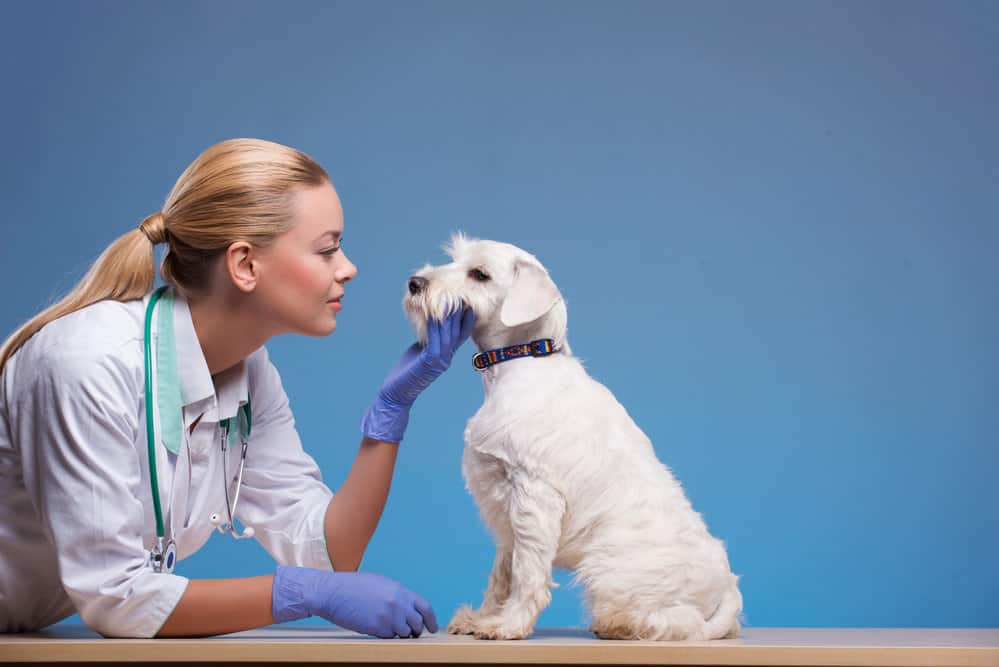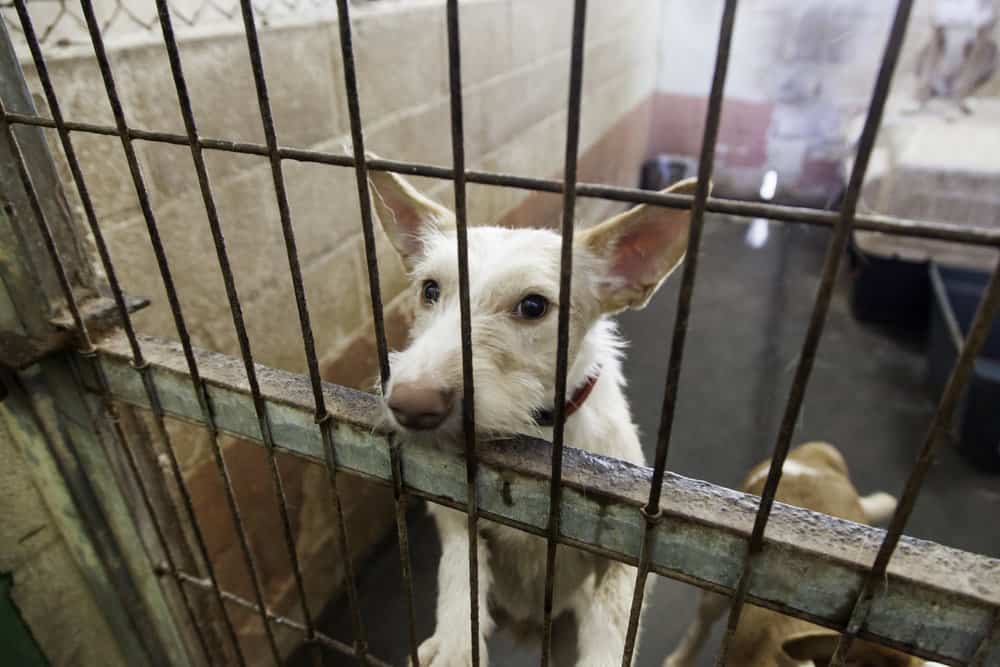Before picking up a puppy, you’ll need to gather as much info as possible about his health, temperament, and family. You also need to verify all the medical records, dietary needs, and the breeder’s licensing.
Getting a puppy can be an exciting experience but great responsibility along with it. This responsibility starts from day one by preparing the right questions to ask the breeder when picking up the puppy.
Helpful Dog Training Resource:
For help with training your dog, you should take a look at The Online Dog Trainer by Doggy Dan. Doggy Dan is an expert Dog Trainer based in New Zealand. His online resource contains Hundreds of Excellent Dog Training Videos that will take you step-by-step through the process of developing a healthy, happy well-behaved dog.
7 Questions to Cover Before Picking Up a Puppy
Let’s take a look at the essential topics to cover with the breeder:
- What Are the Parents Like?
The first thing to ask from a breeder is to see the parents yourself, especially the mother.
If possible, spend some time with the puppy’s parents and get to know them. This will help you predict your puppy’s general temperament and appearance as an adult.

- Is the Puppy Socialized?
Puppies have to socialize when they’re young, typically between 6 to 16 weeks. Good socialization requires exposing the puppy to humans and external stimuli.
If possible, don’t just settle for a verbal answer to this question. Instead, ask to spend some time with the litter.
Here, you’re looking to see how your potential puppy interacts with his siblings. It’ll be a good indicator of how the pup will fit into your household if you have other pets.
- Are There Any Genetic Conditions in the Family?
Inbreeding can result in various genetic conditions. So, you have to ask the breeder if there’s a history of diseases/conditions in the family.
A young puppy may not show symptoms of any hereditary diseases till it’s too late. This will be your chance to keep up with the problems before they flare.
- Is the Puppy Vaccinated?
At six weeks, puppies typically start a series of vaccines from a licensed vet.
Ask for how many vaccine shots the puppy has received and when he should receive his next one.
The answer can help you stay on schedule, but it’s also good to take the records home as a reminder.
- When and where Is the Puppy’s Next Vet Visit?

You can easily shift to a different health care provider. Yet, it might be better to see the pup’s original vet at least once.
This way, you can find out more about the puppy and his general health. The vet might also be able to confirm that the breeder is reliable.
- Are You a Member of a Breeding Club?
If you’re looking for a healthy puppy, you’ll have to look for a trustworthy breeder. Usually, breeding clubs are the best place to start your search.
That’s because the clubs set strict rules and regulations and deal only with well-trained and experienced breeding professionals. Plus, there’s a lower risk of running into a breeding scam in this case.
Always ask the breeder for the club’s name, information, and references. Then, confirm the info with the club later on.
However, you’ll probably want to cover this step before actually picking up the new puppy.
- What Food Does the Puppy Currently Eat?
If the breeder feeds them high-quality food, that’s a sign of a responsible breeder.
However, that’s not the reason behind the inquiry here. Instead, you want to figure out how to shift the diet preference if you need to.
Generally, it’s better to stick with that same diet for the first two or three days after adopting the puppy. If you don’t, you’ll increase your gastric distress risk.
When it’s time to change their diet, gradually introduce the new meal mixed with the old food. After a couple of days, remove the old feed altogether.
Helpful Dog Health Resource:
Note: Our Health is #1 Priority. It should be no different for your dog. But you need to help him. The Ultimate Guide to Dog Health is the answer. This handy guide will help you recognize the symptoms of the health problems above. Get the knowledge to stay ahead of these terrible issues that can rob your lovely dog from vigor and life. Help your friend make it to 14 yrs+ without pain and suffering.
What Are the Red Flags When Picking Out a Puppy?
Let’s move on to five red flags to watch out for when you’re picking up a puppy from a breeder:
- The Breeder Can’t or Won’t Answer Your Questions
Responsible breeders will be more than happy to answer all your questions and discuss the puppies in-depth.
Rushing answers can indicate that they just want to get rid of the puppy as soon as possible.
Alternatively, you might sense that the breeder and his staff aren’t even knowledgeable enough to answer your inquiries.
So, if you find them giving out misinformation or reluctant answers, they might be in it for the money.
- The Breeder Doesn’t Do Background Checks
It’s hard to trust a breeder willing to let some random person walk up and adopt one of his puppies.
They should do their due diligence in checking if you’re fit to be a dog owner. That includes inquiring about your work schedule, living situation, and previous experiences.
If the personnel there don’t care about any of that, odds are, they don’t care about the dogs’ well-being, either.
- Missing Health Checks for the Pup and His Parents
Breeders should have evidence that the puppy and his parents have had their vet visits, vaccinations, and tests.
Moreover, they’ll be happy to show you the paperwork for it. This proves that the breeder is, in fact, responsible and has nothing to hide.
Just remember to corroborate these medical records later on with the treating vet. It’s not a very common incident, but they might be fake.
- The Breeder Won’t Allow You to See the Puppy
Before picking up the pup, it’s only normal to want to see the puppy, his mother, and his siblings.
A breeder who’s mistreating his dogs will do everything to keep you from seeing what’s going on behind the scenes.
So, if this happens, stand your ground and stay adamant about seeing the litter together.
- Bad Breeding Conditions

Once you get to see the puppy with his litter, peel your eyes out for signs of abuse.
For instance, if the place has too many puppies for the available staff, that’s usually a bad sign.
That’s because some breeders reduce the mother to being a birthing machine. As a result, they have way more pups on their hands than they can handle.
The crowding can lead to bad breeding conditions, like:
- Extremely tiny cages that don’t give the dogs space to roam.
- Malnutritioned dogs, especially the nursing mother or the runt of the litter.
- Fecal matter spread around the pups.
- Visible signs of scuffing on the mother’s neck under the collar.
- Untrusting relationships between the dogs and the staff.
If you notice any of these warning signs, don’t just walk away and find a puppy to adopt somewhere else. Take initiative and report the breeder to keep him from abusing other dogs.

Paul has been creating content for the dog niche for many years. The information he shares comes his first hand experience growing up in dog lovers household and then owning multiple dog breeds of his own as an adult. Paul enjoys doing the hard research to collect, analyze and present our dogtemperament.com readers with the best answers to their questions.
Looking for a Dog Breed Price that Meets Your Budget?
Check out our